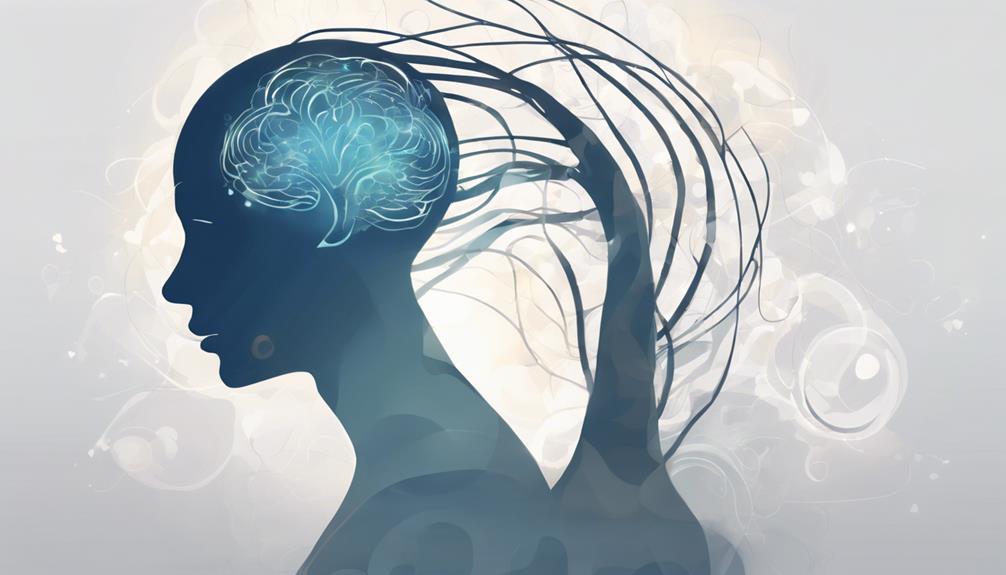Summary
- 1 Understanding Emotional Intelligence
- 2 Recognizing your emotions
- 3 Managing your emotions
- 4 Empathy and active listening
- 5 Improvement of communication skills
- 6 Building stronger connections
- 7 Frequently asked questions
- 7.1 How can emotional intelligence improve workplace dynamics?
- 7.2 What role does emotional intelligence play in conflict resolution?
- 7.3 Is it possible to measure or test emotional intelligence?
- 7.4 How does emotional intelligence affect leadership skills?
- 7.5 Are there specific books or resources to enhance emotional intelligence?
Developing emotional understanding is critical to improving relationships. Start by focusing on your feelings and identifying the causes. Regular self-assessments and keeping a journal can help. Cultivate the ability to remain calm and react thoughtfully to your emotions. Compassion and attentive listening are essential; strive to understand and make a connection with the feelings of others, and show sincere curiosity. Participate in discussions with focused attention, make eye contact and validate the emotions of others. Effective communication and conflict resolution promote trust and respect. As you hone these skills, you will establish deeper and more meaningful connections. Learn techniques to further enhance your emotional understanding.
Understanding Emotional Intelligence

Understanding emotional intelligence begins with recognizing and effectively managing one's emotions. It involves being aware of how you feel in different situations and why you feel that way. When you understand your emotional responses, you are better equipped to manage them constructively.
Imagine you find yourself in a heated argument. Instead of reacting impulsively, emotional intelligence helps you take a step back, breathe and think before responding. This self-awareness and control can prevent conflicts from escalating and improve your interactions with others.
Emotional intelligence is not only about your feelings. It is also about recognizing the emotions of those around you. By being attentive to the emotional state of others, you can respond more empathetically. This creates a positive impact on relationships, as people feel understood and appreciated.
Developing emotional intelligence is an ongoing process. It requires self-reflection and a willingness to grow. The more you practice, the better you become at navigating both your own emotions and those of others. In the long run, this skill can lead to more meaningful connections and a more fulfilling social life. Remember, emotional intelligence is a powerful tool that enriches your personal and professional relationships.
Recognizing your emotions
Recognizing your emotions starts with paying attention to how you feel in different situations and identifying the triggers behind those feelings. When you are aware of your emotions, you can better understand why you react a certain way. For example, if you feel anxious during a meeting, ask yourself what specific aspects of the meeting make you uncomfortable. Is it the fear of speaking, or perhaps the time pressure?
Take a moment each day to check in with yourself. Are you feeling happy, sad, stressed, or calm? Don't overlook these feelings; try to identify what exactly caused them. Perhaps a kind word from a friend lifted your spirits, or a traffic jam put you in a bad mood.
Keep a journal if it helps you. Writing down your emotions and the situations that triggered them can provide valuable perspectives over time. You will begin to see patterns and understand what types of events or interactions trigger certain emotional responses.
Managing your emotions

Managing your emotions means understanding what triggers them and choosing how to respond. You can start by recognizing your emotional triggers, or situations or actions that arouse strong emotions. Next, practice careful answers to these triggers so as to deal with them calmly and thoughtfully.
Recognizing Emotional Triggers
When you start to feel overwhelmed or upset, it is crucial to identify what is triggering those emotions. Recognizing the emotional triggers can help you better manage your reactions. Triggers are specific situations, words or actions that provoke strong emotional responses. They are often derived from past experiences, beliefs or unresolved issues.
Start by observing when your mood suddenly changes. Ask yourself, What was going on right before I felt this way? Was it something someone said? A particular situation? By identifying these patterns, you will begin to understand what is causing you.
Keep a journal to jot down these situations. Writing down your thoughts and feelings can make it easier to identify recurring themes. Also consider your physical reactions-like a fast-beating heart or clenched fists-as clues to your emotional state.
It is crucial to understand why these triggers affect you. Reflect on past events that may be connected to your current feelings. Sometimes, being aware of these connections can reduce their impact.
Practicing mindful responses
In times of intense emotion, it is important to pause and choose how to respond instead of reacting impulsively. This pause allows you to manage your emotions consciously and make thoughtful decisions. Practicing mindful responses means stepping back, breathing and considering potential outcomes before speaking or acting. This can greatly improve your interactions and relationships.
To help you get started, here is a simple chart outlining the steps to practice mindful responses:
| Passage | Action | Benefit |
|---|---|---|
| 1. Pause | Stop and take a deep breath | Reduces immediate emotional reaction |
| 2. Reflect | Think about what you are feeling and why | Increases self-awareness |
| 3. Currency | Consider the impact of different responses | It makes your answer more thoughtful |
| 4. Answer | Choose a calm and constructive response | Improves communication and understanding |
Empathy and active listening
Often, the key to building stronger relationships lies in mastering empathy and theactive listening. When you truly understand and connect with someone else's feelings, you create a bond that goes beyond superficial interactions. Empathy means putting yourself in another person's shoes and feeling what they are feeling. Active listening, on the other hand, involves focusing completely on the other person, understanding their message and responding thoughtfully.
Here are four steps to practice empathy and active listening effectively:
- Pay full attention: Put away distractions such as phones or laptops. Make eye contact and show that you are genuinely interested in what the other person is saying.
- Reflect and paraphrase: Repeat what you heard in your own words. This shows that you are listening and gives the interlocutor a chance to clarify any misunderstandings.
- Validates feelings: Acknowledge the other person's emotions without judgment. Simple sentences like 'I understand how you feel' can make all the difference in showing empathy.
- Ask open-ended questions: Encourages the other person to express themselves more fully by asking questions that require more than a yes or no answer.
Improvement of communication skills

To enhance your communication skills, start by practicing active listening techniques and paying attention to nonverbal signals. You will find that really listening and observing can make your conversations more meaningful. These skills help you understand others better and respond more effectively.
Active listening techniques
Mastering active listening techniques can greatly enhance your communication skills and strengthen your relationships. When you really listen to someone, you show them that they are valued and understood. It's more than just words; it's about interacting with the speaker on a deeper level.
Here are four key active listening techniques to help you connect better:
- Giving full attention: Put away distractions such as phones or laptops. Make eye contact and nod to show that you are present. This signals that you are really listening.
- Reflect and Paraphrase: Summarize what the speaker said in your own words. For example, "So, you are saying that...". This confirms your understanding and shows that you are involved.
- Ask open-ended questions: Instead of questions that can be answered with yes or no, ask questions that require more detailed answers. This encourages the speaker to share more. For example, "What do you think about...?"
- Show Empathy: React with understanding and compassion. Say things like "I can understand why you feel that way." This helps the speaker feel heard and validated.
Signs of Nonverbal Communication
While theactive listening is essential for strong relationships, even the nonverbal communication signals can make a difference in how well you connect with others. Your body language, your facial expressions, and even eye contact can say a lot without you saying a word. When you are engaged in a conversation, maintain eye contact shows that you are interested and attentive. Nod from time to time can signal that you are following and understanding what is being said.
Your posture is also an important signal. Lean slightly forward can indicate that you are engaged in the conversation, while crossing your arms might make you seem defensive or closed off. Make sure your body language matches your words to avoid sending mixed signals.
Facial expressions are a powerful way to communicate your emotions. A sincere smile can make the other person feel more comfortable and valued. On the other hand, furrowing your brow or looking away can make you seem disinterested.
Building stronger connections
Developing emotional intelligence can greatly improve the quality of your relationships by fostering deeper and more meaningful connections. When you are more in tune with your own emotions and those of others, it becomes easier to create strong and genuine connections. To build these connections, focus on the following areas:
- Empathy: Understanding and sharing the feelings of others is crucial. Practice putting yourself in someone else's shoes and show that you care about their emotions.
- Active listening: It is important to really listen to what the other person is saying. Nod, make eye contact and provide feedback to show that you are engaged in the conversation.
- Open communication: Be honest and clear about your feelings and thoughts. Encourage others to do the same. This transparency builds trust and mutual respect.
- Conflict resolution: Disagreements are inevitable, but dealing with them effectively can strengthen your connection. Deal with issues calmly and seek solutions that satisfy everyone involved.
Frequently asked questions
How can emotional intelligence improve workplace dynamics?
Emotional intelligence can really enhance the dynamic in the workplace. When you understand and manage your emotions, you communicate better and resolve conflicts more effectively. You will notice that your relationships with colleagues improve, creating a more positive and productive environment. In addition, being empathetic helps you understand the perspectives of others, fostering teamwork. Being emotionally intelligent will contribute to a happier and more collaborative work environment where everyone feels valued and motivated.
What role does emotional intelligence play in conflict resolution?
In resolving conflicts, theemotional intelligence helps you to remain calm And to understand the feelings of others. You can better manage your reactions and think before you speak. By empathizing with others, you create a more open where everyone feels heard and respected. This approach minimizes misunderstandings and builds trust, making it easier to find common ground and solutions that work for everyone involved.
Is it possible to measure or test emotional intelligence?
Yes, emotional intelligence can be measured and tested. You will find various tools such as the Emotional Quotient Inventory (EQ-i) or the Mayer-Salovey-Caruso Emotional Intelligence Test (MSCEIT). These tests assess different aspects of emotional intelligence, such as your ability to understand and manage your emotions and those of others. They provide perspectives that can help you improve and develop your emotional skills.
How does emotional intelligence affect leadership skills?
Emotional intelligence (EI) is vital for leadership. It helps you understand and manage your own emotions, as well as those of others. When you are emotionally intelligent, you are better at managing stress, making decisions, and resolving conflicts. You also build stronger relationships with your team, fostering trust and cooperation. Basically, EI makes you a more effective, empathetic, and respected leader, which in turn improves overall team performance.
Are there specific books or resources to enhance emotional intelligence?
Absolutely, there are some excellent books to help you boost your emotional intelligence. 'Emotional Intelligence 2.0' by Travis Bradberry and Jean Greaves is an excellent starting point. Another interesting read is 'The EQ Edge' by Steven J. Stein and Howard E. Book. If you prefer something more narrative, check out 'Emotional Intelligence' by Daniel Goleman. These resources can really help you understand and improve your emotional skills.
